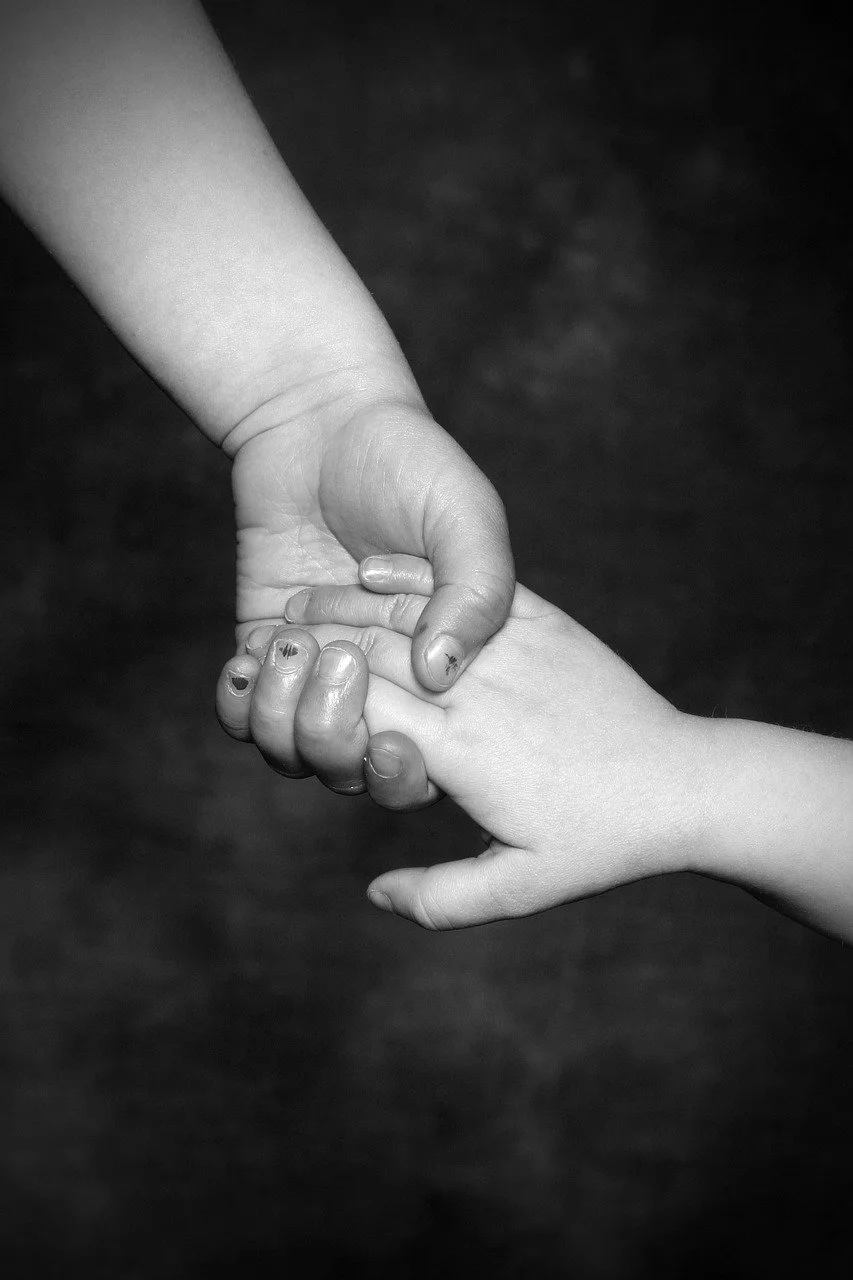before i was named / woman i was not / close to a real man
Read MoreGraffiti Reflection by Kelly DuMar
Kelly DuMar is a poet, playwright and workshop facilitator who lives on the rural Charles River in the Boston area. She’s author of four poetry collections, and her images are featured on the cover of literary journals. Kelly has been teaching creative writing for four decades, including the International Women’s Writing Guild and the Transformative Language Arts Network. She produces the Open Mic for the Journal of Expressive Writing. She’s also a certified psychodramatist who leads expressive arts support groups for psychologists in war zones.
Chittagong Chickrassy by Anisha Bhaduri
In the orbs of collaborative self-sufficiency that Hussein Shaheb, his mother and his wife lived in, in the permissiveness that went with accepting boundaries without distasteful confrontation and in the denial that the fatherless, adult man found himself in, he chose the entrenched tragedy of the past.
Read MoreThe Position of the Sun by Neal Lulofs
I can’t help but wonder what my life would have been like if my father hadn’t been driving through that intersection at that moment. Would I have stayed in college? Would I have been a better person? What if I had done something the night my sister woke me when we were kids?
Read MoreTwo Poems by Sean Cho A.
I once believed distance meant a lack of sound, / but lately silence screams like a falling leaf. / The morning emails offer no relief, / just time zones measured in lost and found.
Read MoreThe middle of that night by Annie McGreevy
I figure I’m making it all up. I’ve been a wreck since he died—my appetite is erratic, my gait agitated, my posture defeated. So, sure—my psyche is probably conjuring him. But I welcome the visions because they soothe me.
Read MoreTwo Poems by Carrie Shipers
Of the siblings / I can reach, one says we were lucky / to survive, and one gets stuck / repeating we were loved.
Read MoreJames Garfield Junior High School, Westchester, New York by Michele Zimmerman
At school dances that are themed like blizzards and vampires and under-the-sea creatures, kids will hear phantom noises in bathroom stalls and other kids will scare their friends with screams. It will become generational knowledge that Johnny H. never left the bathroom stall in the hallway next to the small gym.
Read MoreWhen Fireflies Scatter by Rebecca Evans
This is the first time I shoot a gun, but not the first time I’ve held one. I wish I could tell you specifics. I can tell you what I remember.
Read MoreWhere Beauty Goes by Joe Bonomo
Because something is gone, that doesn’t mean that it goes away. We often clutch at stories, real or those we imagine, that can help give our lives meaning against randomness and disorder.
Read MorePlace of the Shades, or: Letter to Your Laughter by José Orduña
You stood in our living room just after your first birthday as the television played aerial footage of prisoners in hazmat suits lowering caskets into mass graves. Mercifully, you’ll have no memory of it, but your early life unfolded as death felt just there, right outside the front door, delivered by a friend's fingertips, floating on a loved one’s breath.
Read MoreAll Light Is Half Light by John A. Nieves
Some cold nights the fog tinkles against the wind- / ows and shushes along the roof like a paper bag.
Read MoreA Normal Interview with Vauhini Vara by Talia Kolluri
[T]he argument I’m making in the book is that by resisting the narrative of inevitability offered by Big Tech companies and their CEOs and investors, we might open ourselves up to other possibilities — maybe possibilities we haven’t even imagined yet…
Read MoreQueer Femme Asks A Man To Forgive Their Sin by Mateo Perez Lara
I wait for an arrow quiver / strike to kill my aches / & when I look in the mirror / I want to throw knives
Read MoreTwo Poems by Jude Achilles Misick
I spent my childhood practicing girlhood, / wearing dresses that flowed around my ankles, / and stuffing myself full of honey
Read MoreTwo Poems by Jeannine Gailey
I walk outside and above us an open mouth / to the universe – light streaming towards us, / an invitation.
Read MoreA Normal Interview with Trinity Nguyen by Hope Vang
Trinity Nguyen’s debut novel, A Bánh Mì for Two, is a queer YA romance novel that celebrates sapphic love, family relationships, and friendships while also exploring the history, language, and culture of Vietnam. Suffering from writer’s block from her food blog, Lan, a Saigon native, agrees to help Vivi, a Vietnamese-American student on a study abroad trip, uncover Vivi’s mother’s hidden past in exchange for a food tour that will hopefully reignite Lan’s love of writing. As they explore Saigon together, rekindling old memories and making new ones, their friendship blossoms into something stronger as they also find a sense of belonging with each other.
In an email interview, Nguyen and I discuss the theme of secrecy that connects Vivi and Lan to the mysteries of their families’ pasts and draws them even closer to each other, as well as the research Nguyen conducted to capture Saigon’s bustling and romantic atmosphere.
Hope Vang: In your book, there are a lot of interesting parallels between the mother-daughter relationships. What was your inspiration behind creating these layered relationships?
Trinity Nguyen: I wanted to portray the relationships between Vietnamese daughters and their mothers. Vivi and Lan’s relationships with their respective mothers are very different yet also similar. I wanted to write and portray relationships stemming from inherited grief, and the different ways daughters and mothers cope or react to that grief. In the beginning, the two main characters are foils of each other; Vivi hungers for her mother’s past while Lan readily accepts her current situation. By the end of the book, they realize they have a lot more in common than not.
Vang: Whether it is the physical loss of a loved one, the loss of cultural connection to the motherland, or the loss of a home due to war, how has grief or loss in Vietnamese or Asian/Asian-American cultures impacted the way you characterized Lan and Vivi?
Nguyen: I think grief and loss were natural themes that emerged as I wrote. Since the American War in Vietnam is such a recent event, it touches every aspect of my characters and their story. In a sense, I couldn’t have written a novel about a Vietnamese American girl going to Vietnam without exploring the diasporic grief and these complex feelings related to home and belonging. For Vivi, she was easier to characterize because her experience is nearest to mine (and other Asian Americans I know). I wanted Vivi to feel that intense connection to the home that she’s ethnically related to but has never been to. For Lan, she is experiencing a multitude of different losses as well: her father, the passing of time and her own childhood, and the bone-deep generational loss since the war. Though these two characters come from different experiences, they connect through shared grief and loss.
Vang: Another theme you weave throughout the novel is the idea that some things are kept a secret for a reason. I thought it was a beautiful way to include not only the personal experiences of Lan, Vivi, their mothers, and even Lan’s cousin Triet, but also a touching ode to the Vietnamese communities in Vietnam and in the diaspora. Everyone in your novel has their own story that is meant not to be shared. How does secrecy tie in with the complexity of storytelling?
Nguyen: I love this question! It was difficult at first to not be too eager and over-explain myself. I felt very protective of the characters (especially the mothers) and had to hold myself back from defending them. I’m aware of how bratty Vivi may come off at first, as well as how some readers may find Vivi’s mother’s attitude perplexing—but I had to give the characters their time to learn, and not “tell” them how to feel. In the same vein, I don’t want to overtly tell readers how to feel—I want them to read these characters’ stories and decide for themselves.
Vang: As writers, how can we benefit from secrecy?
Nguyen: This is something I’ve been trying to navigate as well! As a debut author, I wanted to describe everything. Now, I want to trust that readers can make their own connections. Also, as an author, I’ve realized I can’t tell everyone’s story–and sometimes, I simply don’t have the right to.
Vang: I loved how you included blogging/food-stagramming and fangirl character in your novel. What inspirations led you to consider this for your novel?
Nguyen: In high school, my friends and I ran a foodstagram together for a brief time before we went off to college. I loved sharing meals (and gossip) with my favorite people, and I wanted to write those feelings into a book. Additionally, I’ve been a fangirl my entire life, browsing and running stan accounts on Tumblr, and Twitter (I refuse to call it X), and writing fanfiction. I love characters with an intense passion for their hobbies/interests.
Vang: What research did you conduct to write about your book? What was surprising to learn about Vietnam or Little Saigon—about the cities, the people, or the food?
Nguyen: I read a lot of Vietnamese American fiction to see how other authors convey all these complex diasporic feelings. But I actually talked to family and friends in Vietnam more (going straight to the primary source) to really develop Lan’s character and story. I learned a lot about the food! Before writing the book, I had this preconceived notion that all these dishes have always existed. I was so surprised to learn how recent some of these fusion dishes are, and the ways they changed Vietnamese culture.
Vang: As much as food is an important part of the worldbuilding in the story, you also do an incredible job of illustrating the city skyline of Saigon and focusing on looking up at the stars. Why did you choose to integrate the landscape into your story?
Nguyen: I love stories where cities feel as alive as characters! Ho Chi Minh City/Saigon is one of the biggest cities I’ve ever lived in and no other cities I’ve been to have ever held up to it. The city also has this unexplainable electric undercurrent running through it, and I hope I have captured that vibrant feeling of being there throughout the book.
Vang: What inspired you to write a sapphic story between two Vietnamese girls?
Nguyen: I will say this was 100% indulgent. The only other sapphic Viet stories I can think of are from Aliette de Bodard, Nghi Vo, CB Lee, and Trang Thanh Tran (also my inspirations). We need more.
Vang: I loved the pining and yearning between Lan and Vivi. Their love for each other felt so natural, growing out of curiosity and becoming inseparable from the city of Saigon while also learning more about themselves from each other. What is your advice on writing a believable romance?
Nguyen: Know your characters! It’s so much easier to write relationships when you understand the characters you are writing. I like to approach writing romance by listing out what my character lacks and how the other person can help them through it. It’s true for real life too, we seek partners that complement us. Also, I find it a lot more fun to write characters with opposing or different perspectives…then finding out they’re so much more alike.
Vang: How can writers ensure they’re conveying healthy relationships to young adults?
Nguyen: This may be controversial, but I don’t believe in always writing happily-ever-afters in young adult books. Coming of age is such an important moment, and I want to be careful about how we portray love and happiness. It’s important to make sure your characters go through their own complex journey and develop their own arc and not make them wholly dependent on the love interest. YA is one of the most impactful genres, and I believe we owe it to young people to have authentic (and realistic) relationships.
Vang: I discovered your book on TikTok long before your book was announced for publication. How has TikTok or social media impacted your experiences as a debut author?
Nguyen: I credit social media for allowing so many readers to find me! When I sold the book, I had lots of doubt about being able to reach the right audience, but thankfully, so many queer Asians have shown me unwavering support—and for that, I’m so thankful. It’s been amazing seeing the data analytics part of social media (I work in marketing analytics for my day job, hah) and knowing that many readers are from cities with heavy Vietnamese populations (Houston, San Jose, and Garden Grove). On the flip side, though, I was grappling with how I was commodifying myself and my story—packaging it into two sentences for the For You Feed in hopes of grabbing people’s attention—and had to reflect on what ‘success’ as a debut author means.
Vang: What are you hoping to explore in any future works or projects?
Nguyen: While I think I’ll always come back to YA, I do want to explore bigger themes that reflect the current sociopolitical climate. I hope to write (and learn) more about young adults navigating their intersectional identities—whether that be diasporic or queer identity—and how they are reacting to this changing world. Fiction informs reality (and vice versa), and I wholeheartedly believe there are lessons to be learned even in sub-genres such as romance or comedy.
Trinity Nguyen is a Vietnamese American author and graduate of Franklin & Marshall College. She was born in Viet Nam and raised in Little Saigon, California, and learned English by reading too many young adult novels and never turning off closed captioning. Her debut novel, A BANH MI FOR TWO, is a national independent bookstore bestseller and a 2024 Goodreads Choice Award Nominee. Trinity currently lives in Los Angeles with her cats and the succulents from her mom’s garden.
Hope Vang is a Hmong American master’s student studying English Literature at Fresno State. Her research interests include children’s literature, Gothic literature, Asian/Asian-American literature, and mother-daughter relationships.
Trinity Nguyen author photo by Jonathan Montero
Composition by Sharon Gusky
Barbie and Ken aren’t together much these days. Ken is often with another doll he has met. Barbie knows this, too. You could not say that “the other” is taller, or slimmer, or more beautiful than Barbie. Barbie and her look alike, except for their hair color.
Read MoreRibs by Miles Parnegg
They pass the Styrofoam cups of potato salad laced with dill, and sometimes go for the banana pudding shingled with vanilla wafers. That is the point, the sharing. They’ve grown tired of individuating, making protective decisions, catering to specific tastes.
Read MoreSurfer's Journal: Part One by Ann Petroliunas
I am three days into a new life. In a new state in a new town at a new elevation where there are other things for single 30-year-olds to do than attend baby showers and bridal brunches. Three days into a new life and I am sitting on a beach waiting for a surf instructor, fantasizing about his abs and our potential.
Read More



















